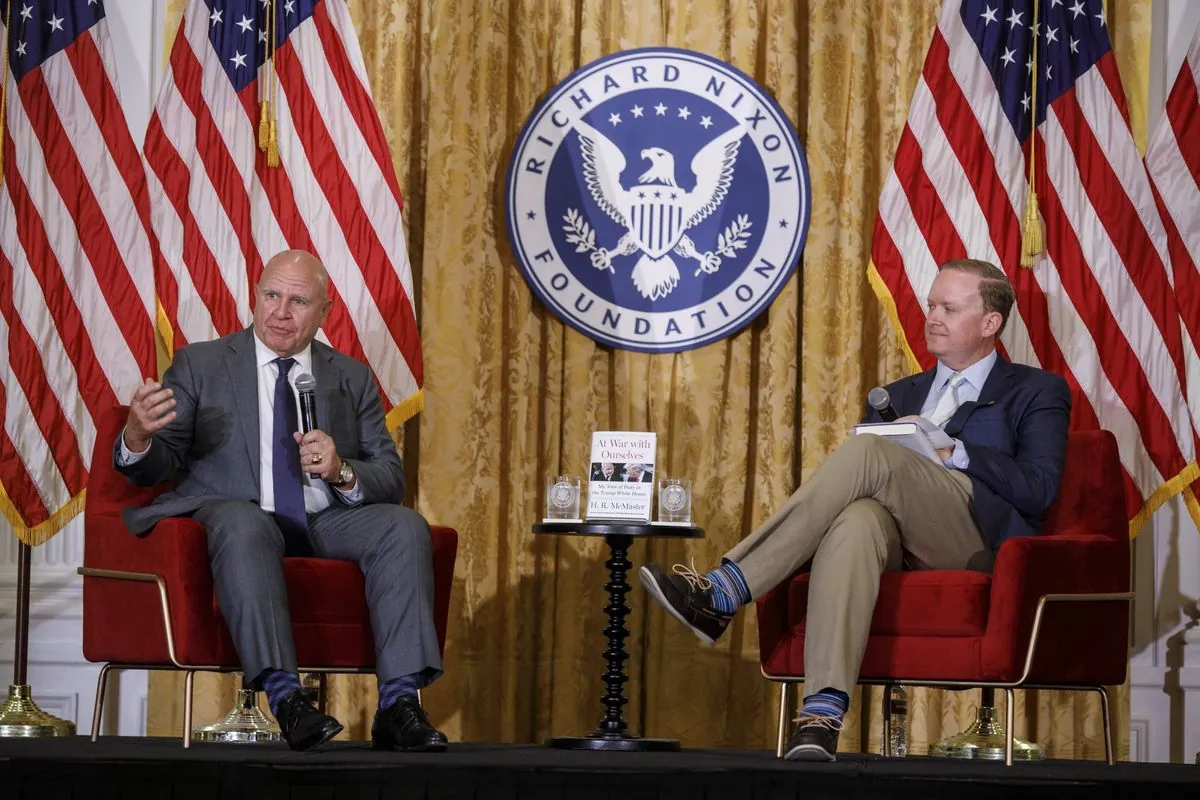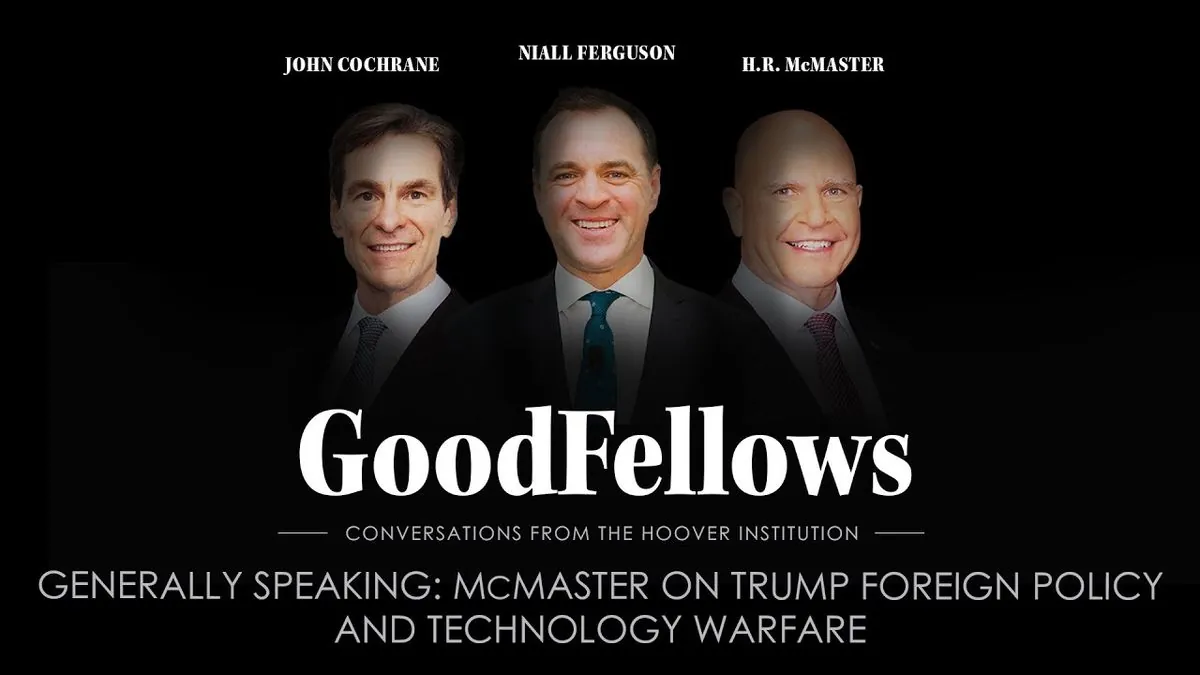McMaster's Critique: Debate Shortfalls and U.S. Foreign Policy Challenges
Former National Security Advisor H.R. McMaster offers insights on the recent presidential debate, Trump's leadership, and U.S. foreign policy missteps. He emphasizes the need for a strong multinational response to global threats.

The recent presidential debate between Vice President Kamala Harris and former President Donald Trump has sparked discussions about U.S. foreign policy and national security. H.R. McMaster, a retired Army lieutenant general and former National Security Advisor, shared his insights on the debate and broader foreign policy issues.
McMaster, who served in the Trump administration for 13 months, has authored two books reflecting on his experiences. His latest work, "At War with Ourselves: My Tour of Duty in the Trump White House," offers a critical examination of Trump's leadership while also addressing shortcomings in the policies of other administrations.
Regarding the debate, McMaster expressed disappointment in the lack of substantive discussion on crucial issues:
"I was glad that there seemed to be an acknowledgment that we're in a period of extreme danger. However, I didn't really hear very much about what a response might be, including what I think is really an urgent effort to rebuild our defense capacity."
He emphasized the need for increased investment in defense and addressing economic threats, particularly from China's control over critical supply chains.
McMaster's relationship with Trump was complex, characterized by disagreements on key issues such as Afghanistan, allies, and approaches to authoritarian leaders. Despite his criticisms, McMaster maintains a neutral stance on endorsing candidates, stating:
"As a retired military officer, I don't want to specifically endorse a candidate. [...] I think the American voters [...] are quite capable of reading the record and making his or her own choice."

The former National Security Advisor expressed concern about Trump's lack of regret regarding the January 6, 2021 Capitol riot, describing it as a "profound disappointment" and indicative of a character weakness. McMaster warned that continued attacks on democratic institutions could embolden U.S. adversaries.
Reflecting on historical context, McMaster highlighted the shift from post-Cold War optimism to the challenges faced after 9/11. He criticized both the Bush administration's underestimation of risks in Iraq and the Obama administration's tendency towards disengagement.
McMaster's advice for the next president emphasizes the need for a strong multinational response to global threats:
"We need a very strong multinational response to the axis of aggressors and that response has to be an integrated response that involves really a significant buildup of our military capabilities to deter war, but maybe an economic response as a matter of urgency to address the fragility of our supply chains."
As the United States approaches the 2024 election, McMaster's insights offer a nuanced perspective on the challenges facing American foreign policy and the importance of learning from past mistakes to shape a more effective future strategy.


































